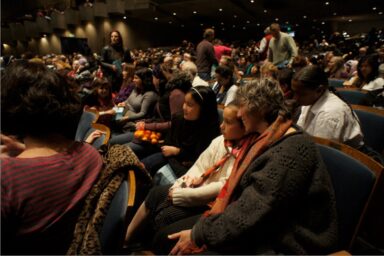Abstract
Hogan, J., Cordes, S., Holochwost, S., Ryu, E., & Winner, E. (2023). Participation in intensive orchestral music training does not cause gains in executive functioning, self-perception, or attitudes toward school in young children. Psychology of Aesthetics, Creativity, and the Arts. Advance online publication. https://doi.org/10.1037/aca0000593
Research investigating effects of music instruction on executive functioning (EF) has yielded mixed results, relying only on a small and inadequate number of true randomized and controlled experiments (Degé & Frischen, 2022). We report here an experimental study of the effects of 2 years of school-based orchestral music training on young children’s EF, self-perception, and school-liking, all of which showed no effect. Children were randomly chosen either to participate in one of three intensive, high-dosage, El Sistema-inspired school-based orchestral music programs or to be part of a control group receiving standard, general music education (which normally does not include mastering a musical instrument) as part of their regular school day. Children were tested at baseline (end of kindergarten), after 1 year, and after 2 years (end of second grade) on four measures of EF, two measures of self-perception, and one measure of school-liking. All students were randomly assigned to the music group or a control group, and baseline differences between the groups were not statistically significant. Despite the intensity of the orchestral music program, no significant effects were found at any timepoint for any measures. We stress the importance of publishing null findings in light of psychology’s replication crisis, the common misrepresentation of correlational findings as causal, and the difficulties that exist in demonstrating far transfer effects. We conclude by cautioning against the justification of music education on the basis of extramusical outcomes, and instead suggest a focus on the intrinsic value of music education itself. (PsycInfo Database Record (c) 2023 APA, all rights reserved).




